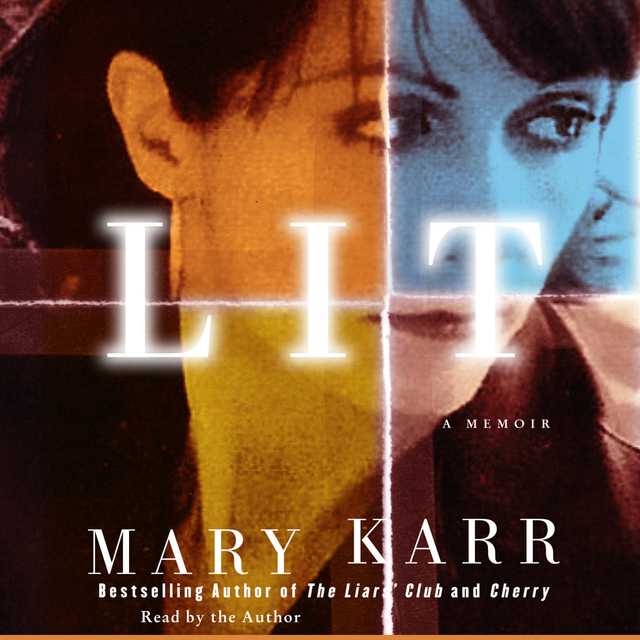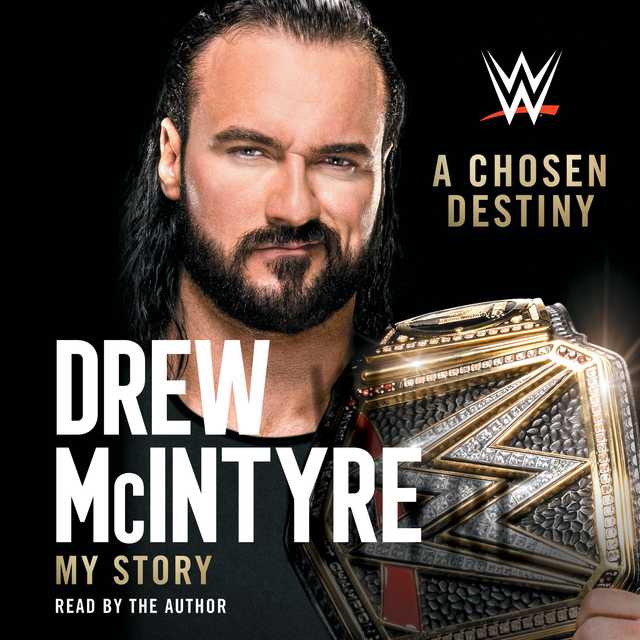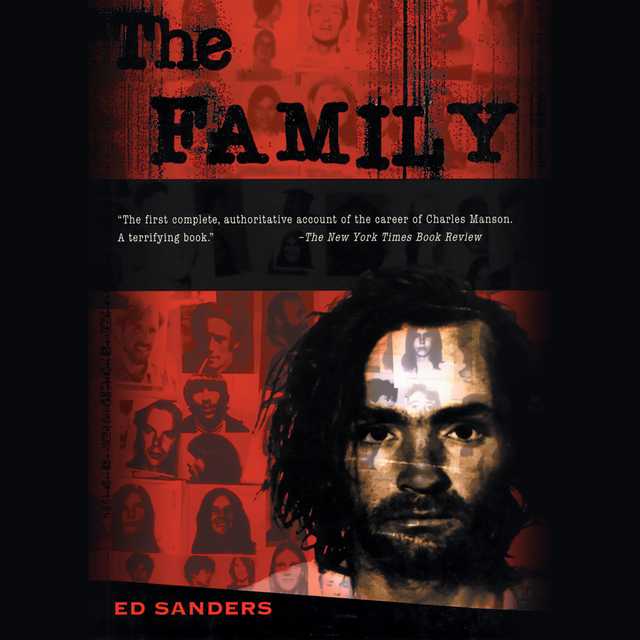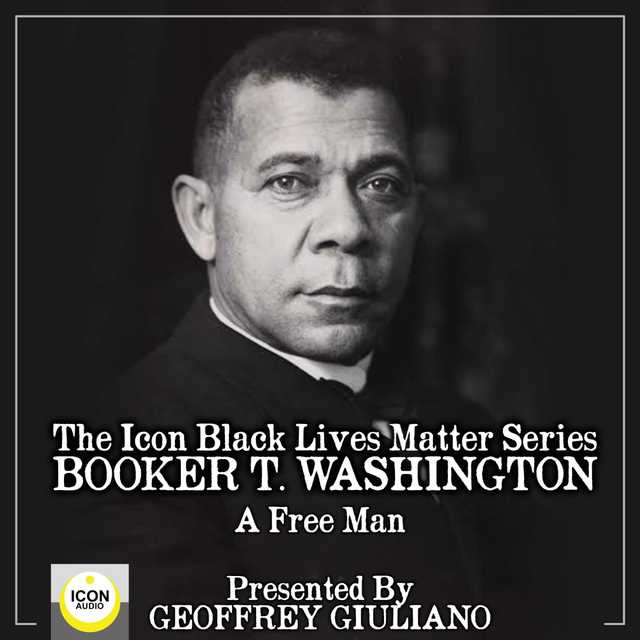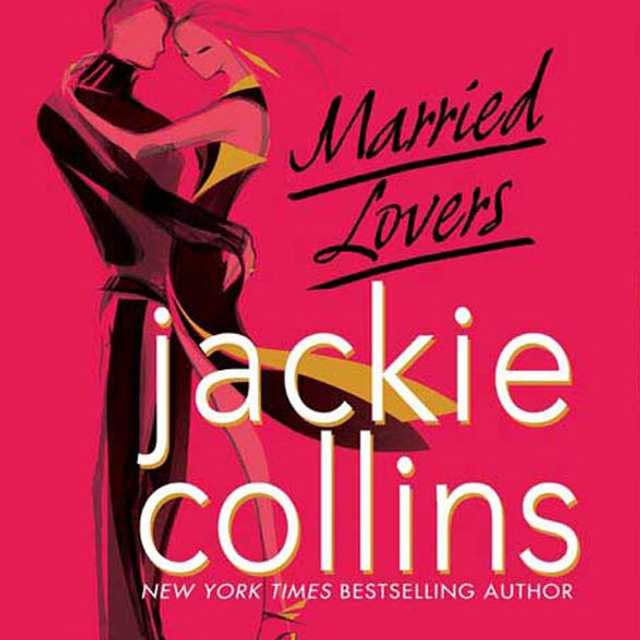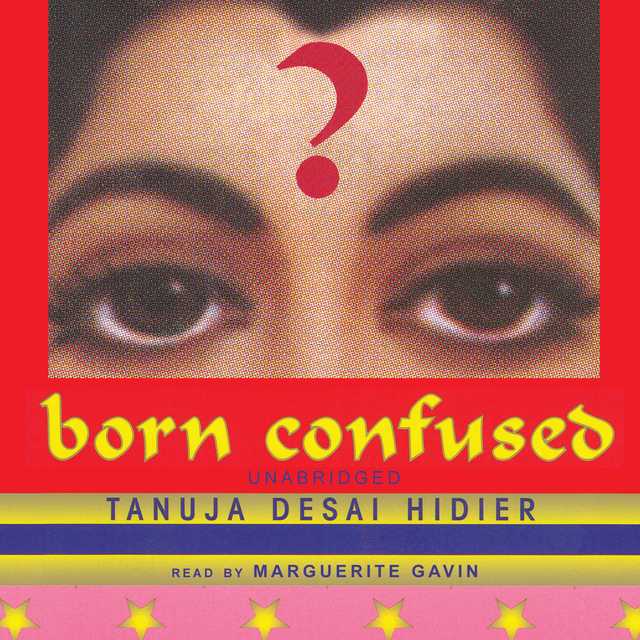Lit Audiobook Summary
A BEST BOOK OF THE YEAR
New York Times Book Review * The New Yorker * Entertainment Weekly * Time * Washington Post * San Francisco Chronicle * Chicago Tribune * Christian Science Monitor * Slate * St. Louise Post-Dispatch * Cleveland Plain Dealer * Seattle Times * NBCC Award Finalist
Mary Karr’s unforgettable sequel to her beloved and bestselling memoirs The Liars’ Club and Cherry “lassos you, hogties your emotions and won’t let you go” (Michiko Kakutani, New York Times).
Lit is about getting drunk and getting sober; becoming a mother by letting go of a mother; learning to write by learning to live. Written with Karr’s relentless honesty, unflinching self-scrutiny, and irreverent, lacerating humor, it is a truly electrifying story of how to grow up–as only Mary Karr can tell it.
The Boston Globe calls Lit a book that “reminds us not only how compelling personal stories can be, but how, in the hands of a master, they can transmute into the highest art.” The New York Times Book Review calls it “a master class on the art of the memoir” and Susan Cheever states, simply, that Lit is “the best book about being a woman in America I have read in years.”
Other Top Audiobooks
Lit Audiobook Narrator
Mary Karr is the narrator of Lit audiobook that was written by Mary Karr
Mary Karr is the author of three award-winning, bestselling memoirs: The Liars’ Club, Cherry, and Lit, as well as The Art of Memoir, also a New York Times bestseller. She received Guggenheim and Radcliffe Fellowships for poetry and is the Peck Professor of Literature at Syracuse University.
About the Author(s) of Lit
Mary Karr is the author of Lit
More From the Same
- Author : Mary Karr
- Tropic of Squalor
- The Liars’ Club
- Now Go Out There
- Cherry
- The Art of Memoir
- Publisher : HarperAudio
- Abraham
- American Gods [TV Tie-In]
- Dead Ringer
- House of Sand and Fog
- Prey
Lit Full Details
| Narrator | Mary Karr |
| Length | 12 hours 30 minutes |
| Author | Mary Karr |
| Category | |
| Publisher | HarperAudio |
| Release date | January 26, 2010 |
| ISBN | 9780061901584 |
Subjects
The publisher of the Lit is HarperAudio. includes the following subjects: The BISAC Subject Code is Biography & Autobiography, Literary
Additional info
The publisher of the Lit is HarperAudio. The imprint is HarperAudio. It is supplied by HarperAudio. The ISBN-13 is 9780061901584.
Global Availability
This book is only available in the United States.
Goodreads Reviews
Will
October 02, 2019
Like Ron Rash and Thomas Hardy, Mary Karr writes dense, image-rich language with a poet’s flair. This is not stuff you speed-read past. Slow down, take a sip from whatever you’re drinking. Maybe read that paragraph again. Make sure there are no visions left behind. The language is a major part of the great value here. The other is the content of the story. Mary Karr - image from her siteLit refers not only to Karr’s affection for the written word, but to her level of sobriety. Her memoir shows us a life lived under the burden of a growing alcohol abuse problem. There are degrees of course, as she descends from occasional use through steady use to can’t-get-through-the-day-without addiction. There is a family history of course, depicted in greater depth in her prior memoirs. The core element of this story is how she hit bottom, then found the strength to survive her ordeal and then crawled out from under her load with the help of fellow substance abusers and a belief in a “higher power,” whatever that may be. That was quite a journey for someone who had been a devout atheist. Whatever one’s view on the existence of such “higher powers,” Karr’s road to such a belief is a compelling one. Like Kaylie Jones’ memoir, Lies My Mother Never Told Me, Karr’s story is compelling for the things she learned, the people she met and the journey she traveled. It is also a luminous piece of work by a top-notch writer at the height of her powers. Lit indeed.Published 11/3/09 - hardcover9/29/15 - Trade paper=============================EXTRA STUFFLinks to Karr’s personal, FB, Twitter, and Instagram pagesItems of Interest——A fun, upbeat item by Karr, from LitHub- Mary Karr Thought Her Whiting Award Call Was a Prank and Hung Up——Promo vid for the book
Jen
December 08, 2009
Karr's hard-edged poetic voice made The Liars' Club one of my favorite books. In Lit, the voice is just as searing and lovely but perhaps not as consistent. The childhood digressions--nods to her previous works--were the weakest portions of the narrative, but they were brief; moreover, they were easily forgiven when bookmarking transcendent scenes such as one in which a group of illiterate women remind the author of the universality of good poetry. I highly recommend this book to all readers, but notably writers and anyone consumed by art. This is a book for writers and artists, from a poet known for her prose.
Ian
June 06, 2021
CRITIQUE:InebriationThis is the third (and, as at the time of this review, the last) of Mary Karr's sequence of memoirs. "The Liars' Club" is still my favourite, although this volume comes close. While the former reveals much about Mary Karr's approach to writing, the latter is more didactic in tone, being focussed on the methods by which she recovered from her depression and alcoholism (via a half-baked Catholicism). The "Lit" of the title has two meanings: one relates to being lit, or being inebriated; while the other relates to being or witnessing something that is illuminated.We're meant to infer that Mary's way out of alcoholism was illuminated by God (or Christ), a higher power for the purposes of Alcoholics Anonymous (AA)."Twist in My Sobriety"This is the part of the book to which I related least. Mary believes that prayer helped her to recover, and if she thinks that is true, then who am I to question her? This type of belief might also have worked for other recovered alcoholics, but so what? I question whether to achieve sobriety, you have to start believing in an imaginary friend (God/ Jesus Christ), the Catholic Church, and its dogma and rituals. The question is the extent to which Mary's belief could apply to others (including you and me). Surely, Catholicism can't be the solution for Jews and Protestants? I can't help speculating that one woman's cure might be another man's poison.I'd prefer to believe that Mary wrote herself into a state of rehabilitation, if not necessarily into sobriety. Writing might be the way to discover and create your self (as well as your parents and family). Arguably, I want to believe that Mary was her own illumination. The problem is that this conceit would be my (secular humanist) fiction, rather than her lived experience and memoir. I'm kind of disappointed that, if her view prevails, there's one less secular humanist in the world.IlluminationHaving passed through her teens in "Cherry", "Lit" is more concerned with the time from 20 to 40, which embraces her early writing career, marriage, parenthood and divorce. "Lit" was published nine years after "Cherry", not that it necessarily took her nine years to write. These other aspects of life obviously consumed a lot of her time and attention, not to mention that she discarded a total of about 1,200 pages of draft, before starting again on two occasions.Anyway, by the time this volume was published, Mary was approaching 50, and her son (referred to as Dev) was approaching 20. Mary's mother had also been dead ten years, aged 80 at the time of her death.In a way, the memoir is an attempt to establish a commonality (in Catholic terms, a communion) with her mother, so that Mary and Dev might avoid the familial conflict that had driven Mary (and her mother) into depression and alcoholism. Mary recognises that: "However long I've been granted sobriety, however many hours I logged in therapists' offices and the confessional, I've still managed to hurt you, and not just the divorce when you were five, with its attendant shouting matches and slammed doors."Just as my mother vanished from my young life into a madhouse, so did I vanish when you were a toddler. Having spent much of my life trying to plumb her psychic mysteries, I now find myself occupying her chair as plumbee..." Ironically, this volume could equally have been titled "Plumb", in malapropian contrast to "Cherry".The OdysseyMary Karr compares her (writer's) journey to the story of the Odyssey: "In Odyssean terms, I'd wanted to be a hero, but wound up - as Mother did - a monster." Home is where the family is, so, paradoxically, we must both escape and return to it: "Maybe by telling you my story, you can better tell yours, which is the only way to get home, by which I mean to get free of us." She must finally replace the "burnt-out lightbulb I fail every day to change", so that Dev's path into the future of his life might be better lit or illuminated.This might also constitute a reason we should read this memoir/these memoirs of lived and lit experience - so that we can escape the behavior we share with Mary and her Mother (not to mention a notorious tattooed maximalist outlaw I'll call Red Bandana).Mary Karr's memoirs of a sexually active outlaw writer could almost persuade you that she is more heroic than monstrous (at least, at heart). On the other hand, she might just be anything but tame. "What hell do we have that we didn't construct?" SOUNDTRACK:(view spoiler)[Belly - "Feed the Tree"https://www.youtube.com/watch?v=LTtdt...Throwing Muses - "Not Too Soon"https://www.youtube.com/watch?v=RZI-F...Throwing Muses - "Two Step" (Live)https://www.youtube.com/watch?v=zGzRt...The Breeders - "Cannonball"https://www.youtube.com/watch?v=fxvkI...The Juliana Hatfield Three - "My Sister"https://www.youtube.com/watch?v=Cer5n...The Juliana Hatfield Three - "My Sister" (Live on "Late Night with Conan O'Brien")https://www.youtube.com/watch?v=czL5F...https://www.youtube.com/watch?v=04Hs8...The Juliana Hatfield Three - "My Sister" (Live on KEXP)https://www.youtube.com/watch?v=mHYHg...Blake Babies - "I'm Not Your Mother"https://www.youtube.com/watch?v=sZG5X...The Lemonheads - "It's About Time"https://www.youtube.com/watch?v=2LGpu...Lucinda Williams - "Right in Time"https://www.youtube.com/watch?v=7SV3-...Lucinda Williams - "Right in Time" [Live from Austin, TX]https://www.youtube.com/watch?v=_jMyh...Lucinda Williams - "God I'm Missing You"https://www.youtube.com/watch?v=SI0Sp..."Are you gone forever?Are you gone for good?Or have I gone crazyWishing you would?Come 'round the next cornerStep off of that trainYour old black umbrellaFades half in the rainGod, I'm missing youGod, I'm missing youGod, I'm missing you"Rosanne Cash - "Sister Oh Sister"https://www.youtube.com/watch?v=u8psZ...Rodney Crowell - "Anything But Tame"https://www.youtube.com/watch?v=ZsonB...Tanita Tikaram - "Twist In My Sobriety"https://www.youtube.com/watch?v=7s8gl...Lou Reed - "Tatters"https://www.youtube.com/watch?v=TWZyM...Sonic Youth - "Sugar Kane"https://www.youtube.com/watch?v=RIIEb...One to One: Mary Karrhttps://www.youtube.com/watch?v=keF8A...Mary Karr, Remembering The Years She Spent 'Lit'https://www.npr.org/templates/story/s...Point Loma Writers: Mary Karrhttps://www.youtube.com/watch?v=t9qYv... (hide spoiler)]
Sara
July 12, 2011
The experience of reading this book is one of being swept so effectively into someone else's experience that I have to give it a five. Pick it up, lie down on the couch, and if you've ever been an aspiring writer, a member of a psychotic family, a lover of poetry or even just an avid reader, you'll be as absorbed as ever you were in Anne of Green Gables, Little Women, Jane Eyre. East Texas girl overcomes horrific childhood but has to kick her alcoholism to become best-selling memoirist is just as gripping as Jane finding love but needing to overcome Rochester's bigamous impulses, or Anne finding a home in Prince Edward Island once she starts getting a grip on her habit of living only in daydreams.Karr delivers us what we want the most: a tale of upward mobility and material success that is also the tale of moral reform. Little Mary had the discipline to live through a psychotic mother, stop drinking and trust God, thus she is now a wealthy author living in Manhattan. I confess to having eaten up every last spoonful. But I wonder. Can a narrative of spiritual reform also be a narrative of material success? I haven't got the slightest doubt that Karr experienced a real spiritual reform. She tells the story of her drunkenness without a trace of defensiveness or self-excuse. She struggles to forgive her mother, and if the tone of all three of her books can be believed, she succeeds. After reading all three memoirs, *I* have trouble forgiving her mother. She was a dangerous and impossible woman. Reading Karr's memoirs makes me humble, makes me want to try to be a better more forgiving person myself. It's just that the logic of "I started to pray, and then God gave me a fellowship. And a book contract. And a best-seller" is very far from the life stories of saints and mystics from whom Karr draws her own spirituality. Those biographies usually go "I started to pray and then God asked me to give up all my worldly wealth, and now the church has set the Spanish Inquisition after me." Karr may be a reluctant Catholic, but this memoir is more aligned with the Protestant tradition of a Christianity of prosperity.Still, the book is lusciously written, engaging, and offers the hope that we can all become, with a little bit of grace, better selves, while keeping our senses of humor. It is a book worth reading.
britt_brooke
August 30, 2017
"Why is it that everyone else is traffic?" I listened to this on audio read flawlessly by the author. Something about it coming directly from her mouth, her Texas drawl still slightly present, really enveloped me. Her writing is raw. The descriptions, lovely. She is rough, bold, and smart. I like her.
Alexis
December 31, 2013
Warning, craft review! Karr employs or deploys a number of craft strategies and techniques that I examined in order to rip-off for my own writing. I whittled down the many to these few:• Prologues as context, anchoring (and/ or launching?) points for both writer and reader, and how the prologues determine the economy of explanation throughout the book;• Management of present- and past-self narrators, for story, for suspense, and other effects;• Cognitive entry points (the deft turns-of-phrase Karr uses to access—or to seem to access and thereby weave in—memory);• Use of parenthetical statements as a device for interrogating her own memory, calling bull shit on herself, and/or adding another layer of subjectivity. With the prologues, we encounter an open letter to Karr’s son, which answers the vital narrator questions outlined by writer David Mura (in a presentation I attended at the Stonecoast Residency) (Who? To Whom? When? Why?) The reader is immediately oriented. Perhaps just as important, these prologues also locate the writer—provide her with narrative marching orders. If she should forget, Karr’s prologue can remind her of who is telling the story, to whom, when, and why. And as writers, we do forget: we get bogged down in minutiae or umpteen other concerns and forget the larger shape of our stories. In the first prologue, “SIDE A: NOW,” Karr launches the ‘I’ into a place of intimacy, closeness, truth (no bullshit), tenderness, and regret; she’s writing to her son, and as a result, the narrator’s calibrations are finely tuned in the way that only family can hear them fully. And yet, the reader is not left outside because Karr knows that, as Joyce observed, the universal is rendered in the particular, or in this case, a universal pain is rendered in Karr’s idiosyncratic voice—Texas-shit-kicker-cum-Harvard-poet. We are invited eavesdroppers. Contextualizing the book in this way (as letter to son) also forces Karr to write from a place of love and tenderness. It forces a level of honesty beyond Karr’s obvious honesty and snarkiness—into emotional honesty that isn’t clever or well-spoken. It is in these moments when I stop marveling at the writer and take in the human being; for example, while visiting the sober house, the narrator finds herself confessing deep, clichéd fears: “For some reason, my eyes well up, and I find myself saying to women I just met, I’m afraid I’m not a good mom”(242). Writing the prologue to her son keeps the narrator accountable to this level of emotional honesty. At a minimum, it keeps the bar high.Also clarified by the prologue is the economy of explanation. The audience for the prologue is an intimate, and someone to whom she is making amends. I don’t know if anyone ever asked Karr if she thinks of Lit as a 9th step of sorts, but I’d be interested to hear her answer. Answering the narrative questions serve to clarify the story. This is a story of redemption and self-definition from mother to son, and why and how the mother tells it, is to free them both. If ever Karr got unclear about who, what, when, to whom, and why, she could just look at this line, which I see as the underpinning refrain of the book: “Maybe by telling you my story, you can better tell yours, which is the only way to get home, by which I mean to get free of us” (6). Of course the book is her own journey to get free—of her family story, of her own alcoholism—to get home. I think all writing is about going home—we go deeper inward to bring truth outward.I admired, too, the way Karr seamlessly threaded both her present and past narrative selves--whether with a sentence or a paragraph, or sometimes just a phrase. She makes such a transition at the end of the second chapter, right after her so-called college “interview” in which being fondled is the price of admission. We are in that scene, and then we are out, with a spry-witted turn: “With his trembling and sweaty hand, he cupped first one breast, then the other, saying, By God, they’re real! Such was the interview that landed me in a school far beyond my meager qualifications” (32). Seemingly all at once, we are firmly in the past moment, then we are looking back on it, and then even looking forward from it. When she first meets Walt, Karr manages well the tension that can be exploited with narrator. The past narrative self doesn’t know that he’s a good guy, but the present narrating self does: “My department collects strays, he said. Stop by my office tonight. We’ll see what we can find. But during the day, the prospect slid back and forth like a BB. Why did he want to see me at night? Leaving my library job, I faced sparse snow on the ground, scraped at by winds like straight razors” (37). What menacing! But Walt proves harmless. Karr manipulates this tension frequently, and by quick turns, so as to keep the energy of the story up without seeming like a predatory narrator.Another example (and one of my favorites) comes when she and some other drunks are car-pooling to an outside meeting and she suspects the driver is drunk. (This is known as a commitment in and around Boston, meaning the group is committing itself to serve another group, but when I first heard it, I immediately thought commitment, as in to be committed…to a nuthouse.) She captures AA so wonderfully, with such humor and depth and reverence, I want to read it through once more just for that. As she steps into the car, her present narrating self smells juniper, a hallmark of gin, but she talks herself out of her instincts. Fumblingly, he lights a cigarette, and the present narrating self declares, “This, I think, is as drunk a motherfucker as I’ve ever seen, fixing to steer the car I’m in. As a kid, I was trained to give the shitfaced room” (230). They end up driving to the meeting hall, with the reader still in suspense; the reveal comes a few pages later (the narrator was right!) when they find the drunk motherfucker passed out under a tree.I’ll make my last two observations quickly, but I want to note them at least. Karr maneuvers her thinking with either physical objects or with cognition itself as a tangible object, wherein she holds the thing or thought in her hand, her mind, her gaze, and uses it as a Chutes-and-Ladders-esque entry point into some other thought, memory, scene, or image. Right off, in the prologue, she regards a videotape while thinking of her son’s leaving: “So after you’d gone, I played it—maybe for the first time all the way through. It’s a summer afternoon in a yellow kitchen we’ve yet to remodel.” She drops us right into the scene. She does it again in the next prologue by using the red camera eye as an entry point. She uses a triangle of a book page (Lorca) a bit later on, as a vehicle for thought, for movement into memory. It’s a device of Nabokov’s, his inimitable madeleine cookie moment from Speak, Memory, and Karr uses it just as expertly, as a mode of transporting the reader and as a pivot point for reflection.Finally, I admired how Karr used a parenthetical third narrator. I have been attempting this, without being fully conscious of it in my own work, particularly in managing information I learn later from third parties or from court documents. It adds so much depth to Karr’s already rich voice, and it did so leanly—in these seeming asides. But the asides by virtue of their repetition begin to take on weight, and because their function changes—from true aside to longer note, they begin to seem like highlighted grafts of language. They begin to function as another lens of subjectivity, which ultimately makes her narrator all the more reliable. One striking example comes as Karr sits prostrate before a toilet bowl, having just checked herself into the bin. It’s characteristic Karr to be self-conscious about such a moment, and she is, and further she acknowledges this self-consciousness on the page, in a sort of screenplay aside that appears in parentheses: “(Vis-à-vis God speaking to me, I don’t mean the voice of Charlton Heston playing Moses booming from on high, but reversals of attitude so contrary to my typical thoughts—so solidly true—as to seem divinely external. And quiet these thoughts are, strong and quiet. View it as some sane self or healthy ego taking charge, if you like. By checking in to the hospital, I’ve said in some deep way uncle, or—as they said in my old neighborhood—calf rope, referring to an animal hogtied in a rodeo arena. I’ve stopped figuring so hard and begun to wait, sometimes with increasing hope, to be shown)” (276).
Joseph
April 09, 2022
After reading Mary Karr's "Liars' Club" and "Cherry," the first and second memoirs in the trilogy, I didn't think it could get any better. I figured, "Lit," the final memoir, would be just as awe inspiring and breathtaking as the previous two, but my God, was I wrong. "Lit," was even better and if one puts all three together you have what I call an amazing collection and if I was an English Professor teaching about the art of the 'memoir' this is the collection I would have my class read."Lit," explores the underbelly of alcoholism, the struggle to recover, and eventually the spiritual enlightenment of living with the disease but not falling prey to its lingering demons and temptations. Ms. Karr, a distinguished poet, who uses poetry throughout the memoirs, reaches the highest levels of honesty which is a hallmark of all great poets from Dante, Byron, Keats, Poe, Elliot, and Yeats. The great editor, Maxwell Perkins, thought that poetry, was the apex, the summit, of all the writing forms; and considering that Mr. Perkins, "The Editor of Genius," was Hemingway, Fitzgerald, and Wolfe's editor is saying a lot.Ms. Karr's story is horrid, but in the end with the guidance of her son, sister, counselors, priests, nuns, the ghost of her father, and friends she does reach what Dante called "Paradiso." The final book in his great trilogy, "The Divine Comedy." She might not reach the highest sphere, but with the help of her guides (Beatrice in "Paradiso") she comes, to a certain extent, very close to the inner enlightenment and glory of God...to the concept of a Higher Being.
Patrick
April 20, 2011
Lit: A Memoir, Mary Karr's journey through alcohol, and alcoholism, takes the reader into her life; marriage, drinking, childbirth, drinking, teaching, drinking, writing, drinking, family, drinking, failed marriage, drinking, getting sober, drinking, really getting sober, not drinking, finding god, mother's death, and finally more god – was well written, entertaining, informative, and as always with Karr's writing – self centered and self depreciating – which I'm not complaining about, as she pulls it off quite well. I love her folksiness, her down home Texas twang, her bad girl persona, even if at times it comes off an act. However what left me cold, making the last 50 pages hard to get through, was Karr's proclamation of all things god – which was actually more god than I knew what to do with. Not that I'm opposed to others want/desire/need for god. If it works for you by all means go with god or any other deity/religion that helps. I just had the overwhelming feeling I was getting recruited – which is how I feel whenever I'm in the presence of a zealot. Suddenly I'm thinking that maybe I should be praying to the holy trinity so that my car doesn’t breakdown, my assistant teaching job isn't phrased out due to the economy, or I finally get that as of yet elusive book deal – just like Mary did – yes, she attributes it to god. And then I find myself thinking I'm missing out here. I need an edge, a piously holy edge with the Big Guy looking out for me. Then I wake up and remember that most authors' success is a crapshoot, like winning the lottery. And it's not always about how well you write, but more who you know, where you've been published, where you teach – that you belong to the club, that seemingly elusive literary club. Which is why the publishing industry is in the mess that it is. It's an outmoded nonworking business model. And just like the music industry's complete rearrangement, the publishing world is scrambling to reinvent itself. Okay, how did I get here reviewing Lit: A Memoir? Apparently I can never just shut up and stay on subject – so yeah: Mary Karr writes beautiful prose. Her imagery, dialogue, and structure flawless. She tells her story and we, the reader, are all the more richer for it.
Ciara
September 13, 2012
i'm not sure what to say about this book. i LOVED the liar's club & was so excited to read cherry, the second in her memoir trilogy. & even though that book is about coming of age adolescent girlhood, the kind of thing i love to read, i found it depressing (even more than ! or in a less appealing way or something), & the writing was too "poetic" for my tastes. therefore, i procrastinated for ages before cracking this book, the third of the memoir trilogy, open. i knew it was about mary's experiences becoming an alcoholic after her son's birth & her long road to recovery. addiction/recovery memoirs aren't really something i have a great interest in, & i was anxious about four hundred pages of fanciful/depressing prose about a subject to which i am indifferent. i checked this book out of the library & actually didn't start reading it until it was already overdue--& i NEVER accrue late fees! i devour books the second i bring them home! so this was a departure for me, to be sure.anyway, once i started reading, i really enjoyed the book. it was far superior to cherry, maybe even better than the liar's club, until about 300 pages in. & that is when mary converted to catholicism. wow. did not see that coming. did not like. i mean, good for her, she seems to have gone into it with her eyes open & it's a meaningful & satisfying aspect of her life. but it weirded me the hell out. part of what i find difficult about writing about recovery (especially the twelve-step method, which seems to be pretty much the only thing that works for a lot of people) is all the talk of "higher powers" & "spirituality". far be it for me to begrudge a recovering addict any tools that will help them to get better, & if they find religion in the process, that's their own personal business. but it's not something i'd necessarily choose to hear about, you know?the other thing that was weird about this book is that it seemed to me that a lot of mary's problems could be traced back to some kind of PTSD from growing up with a crazy mom who tried to kill her. it seemed like a lot of her experiences with alcohol were some form of self-medication. & yet, mary was bound & determined to sustain a relationship with her mother. she writes about her mom attending her wedding & getting high & causing a bit of a ruckus. she writes about how she didn't drink at all when she was pregnant, & invited her mom up after the baby was born to help out with the first few weeks, & how her mom basically enabled her to fall of the wagon & start drinking again. i guess if mary's made her peace with this kind of shit, it's not my place to cast aspersions, but i don't talk to my family, really, for a reason, you know? it's just kind of difficult to sit & watch people make self-destructive mistakes. though, she's a highly-acclaimed published author & i'm not, so i guess she's doing something right. bottom line: i really enjoyed this book, despite the fact that it contained several elements that made me wonder WHY i enjoyed it so much. i wish i had better answers...but i'd still recommend it.
Dana
June 21, 2016
Mary Karr is a poet. This is a memoir. This is prose. But also poetry.I have underlined and dog-eared a page in every chapter of this book. It's been essential to my well-being in the past month. Is it pretentious to say that? I'm saying it. This was a healing book to me. I read it at a time when I didn't know how much I needed it but I did and it delivered.It's starts out Texan and funny, raw and melancholy (Mary Karr's early life is hilariously awful but actually quite tragic), then it delves into her alcoholism and depression which are heavy and heartbreaking and dark it invokes the same hollow-eyed fear of the halfway house scenes in Infinite Jest which she by the way actually stayed in as an in-patient. She takes you through it, unflinching, unapologetic and you taste her fear and desperation and although the text is triggering she still conveys it so poetically it breaks my heart a little. The last third of the book is her survival and spiritual transformation. I did not expect this book to take me on the spiritual journey it ended up providing. It's in no way preachy or anything like that. Karr's struggle to accept the notion of the higher power, to pray, to give thanks, to kneel, to let go...it's all so personal. It hit really close to home.
Amy
August 21, 2020
A Tour de force. Hands down one of the best memoirs I’ve ever read. Mary can write exceptionally well and she doesn’t hold back, with a wrenching honesty that kept me captivated the whole long listen. As I did the audiobook, I loved having her be the narrator and don’t think I would have listened if it was anyone else. I highly recommend if you like memoirs. I have already recommended this book to one of my friends where sobriety has been a big part of their journey, and I definitely think anyone who struggles/struggled with alcohol or other substances, would get a lot from hearing her story.
christa
November 28, 2009
Mary Karr's third memoir "Lit" is her own personal VH1 Behind the Music-style story, picking up the tale around where "Cherry" ended and stumbling into the place where "The Liars Club" became something Karr could sign in bookstores for fans in a line that winds around the block. First she has to shake the drink. Early scenes find Karr perched on a back porch, a drink in one hand, a baby monitor in the other, simmering in a boozy stew of self-loathing. She didn't want to drink this much, or maybe she had even vowed to quit that day. She's gone from East Texas to California, to a college she cutely calls Lackluster located in St. Paul. There she develops an electric response to writing poetry, and makes the sort of friends who encourage her, lend her money, offer to adopt her and otherwise keep her pointed north. Fun fact: At one point she is named Poet In Residence of Minneapolis, which she calls "the most dubious post I ever held." Karr marries another poet with Ivy League roots who was born into a lawyerly legacy and a home that has more than one wing. They maintain a boho lifestyle in the early parts of their marriage. Karr bridges the gaps in their upbringing by being smart, spinning a great yarn, and being interested in literature.Their relationship goes off the rails around the time their son -- Dev, at least the III -- is born. Karr's husband, whom she provides with the fictitious name Warren Whitbread, is busy with work and school; Karr is planting satellite booze reservoirs in laundry baskets and closets. When the "I want to kill myself" impulses get too heavy, she is admitted into a posh "Mental Marriott" as she calls it, to begin healing. God-pushers are the bonus gift that come with Alcoholics Anonymous, and at first Karr pushes back. But when she begins dabbling in prayer, she experiences situations that she believes are sort of mini miracles which strengthen her conversion. She receives a grant; An agent damn-near begs her for the book proposal that will eventually become "The Liars Club." After cross examining a priest dozens of times, Karr commits to the Catholic church. Karr is just such an amazing, meticulous writer. Her roots in free form poetry are so strong that you don't even want to blink and miss one iota of one sentence. Every word is adding something extra awesome to the natural way she has with telling a good tale. She also has a skilled ear, cataloging fantastic quotes from friends, like this one from her friend John: "Justs as there's a woman for every man, no matter how ugly, there's a magazine for every poem."I wish I was a big enough person that I could have treated the bits of this memoir that include David Foster Wallace with a leveled shrug. Like he was just some guy from AA who wore a red bandana and heavy boots and wrote Karr lengthy handwritten letters complete with footnotes. Unfortunately, I'm exactly the kind of person who would subscribe to a magazine called "Hot Literary Couples," and so Karr's brief, albeit heated, relationship with DFW left me in the dizzy sugar rush I get from watching "The Hills."I'm not alone in this gooery. Google Mary Karr, and a suggested add to the search is David Foster Wallace. She keeps a cool distance from him in her writing, the relationship remains balanced between make outs and break ups and never mentioned his tragic end. It is very controlled and void of a gushy rewriting of history, which, considering the circumstances, is pretty incredible. It took going outside of "Lit," and reading the essays she wrote about DFW after his death to see that there remains a tenderness for him. For as much as I love Mary Karr, there were parts of this book that were so similar to the books of Anne Lamott that are shelved in the religion section. Writers, alcoholics, sassy single mothers, finding God, all while surrounded by friends who drop Yoda-esque nuggets of wisdom and serve as on-call support. I had to take the image of Karr I was carrying in my head, and mentally remove the dreadlocks.
Lori
June 09, 2017
Mary Karr is about to get down on her knees to pray. She realizes that kneeling makes you the right size - small, needy, even pathetic. She’s been at this altar before - drunks call it “the throne”. And there have been many boozed-up nights and hungover mornings that she laid at its feet while emptying herself from the poisons of addiction. It doesn’t matter what form the poison takes - whiskey, beer, wine - its effects are always harrowing and exact."Lit" is the compelling memoir of Mary Karr’s out-of-control struggle with alcoholism. She takes you for a ride, but the ride is hardly exhilarating. Her brazen, vivid language offers an honest, brutal account of what life was like for a young woman caught up in the throes of alcoholism. A disease that includes disappointments, dishonesty, denial, divorce. Plus, the additional challenges of dysfunction, lack of discipline and self destruction. She slowly recognizes her sinfulness in all its ugliness. Fortunately, once she begins the recovery process (and finds God) she receives a new lease on life. Her initial prayers to God will leave your mouth hanging open! What follows is a spiritual pilgrimage that leaves the reader with an empathetic look at her addiction and useful truths about Life.My only criticism of the book is that Karr inebriates her writing with too many similies. They create powerful mental imagery, but don’t add any real meaning to her emotional journey - nice descriptions, but they didn’t stir up an appropriate feeling for me and at times left me disconnected with her personal experience. My metaphorical cup was full halfway through the book! Perhaps, she was trying to be a little clever with the prose (she has won awards for both verse and essays) and was trying to attract attention to the skill of her writing.(BTW, Cindy and Dianna this review is dedicated to you. Yes, every once in a while a 5-star rating comes along. Cheers!!)
Most Popular Audiobooks
Frequently asked questions
Listening to audiobooks not only easy, it is also very convenient. You can listen to audiobooks on almost every device. From your laptop to your smart phone or even a smart speaker like Apple HomePod or even Alexa. Here’s how you can get started listening to audiobooks.
- 1. Download your favorite audiobook app such as Speechify.
- 2. Sign up for an account.
- 3. Browse the library for the best audiobooks and select the first one for free
- 4. Download the audiobook file to your device
- 5. Open the Speechify audiobook app and select the audiobook you want to listen to.
- 6. Adjust the playback speed and other settings to your preference.
- 7. Press play and enjoy!
While you can listen to the bestsellers on almost any device, and preferences may vary, generally smart phones are offer the most convenience factor. You could be working out, grocery shopping, or even watching your dog in the dog park on a Saturday morning.
However, most audiobook apps work across multiple devices so you can pick up that riveting new Stephen King book you started at the dog park, back on your laptop when you get back home.
Speechify is one of the best apps for audiobooks. The pricing structure is the most competitive in the market and the app is easy to use. It features the best sellers and award winning authors. Listen to your favorite books or discover new ones and listen to real voice actors read to you. Getting started is easy, the first book is free.
Research showcasing the brain health benefits of reading on a regular basis is wide-ranging and undeniable. However, research comparing the benefits of reading vs listening is much more sparse. According to professor of psychology and author Dr. Kristen Willeumier, though, there is good reason to believe that the reading experience provided by audiobooks offers many of the same brain benefits as reading a physical book.
Audiobooks are recordings of books that are read aloud by a professional voice actor. The recordings are typically available for purchase and download in digital formats such as MP3, WMA, or AAC. They can also be streamed from online services like Speechify, Audible, AppleBooks, or Spotify.
You simply download the app onto your smart phone, create your account, and in Speechify, you can choose your first book, from our vast library of best-sellers and classics, to read for free.
Audiobooks, like real books can add up over time. Here’s where you can listen to audiobooks for free. Speechify let’s you read your first best seller for free. Apart from that, we have a vast selection of free audiobooks that you can enjoy. Get the same rich experience no matter if the book was free or not.
It depends. Yes, there are free audiobooks and paid audiobooks. Speechify offers a blend of both!
It varies. The easiest way depends on a few things. The app and service you use, which device, and platform. Speechify is the easiest way to listen to audiobooks. Downloading the app is quick. It is not a large app and does not eat up space on your iPhone or Android device.
Listening to audiobooks on your smart phone, with Speechify, is the easiest way to listen to audiobooks.

